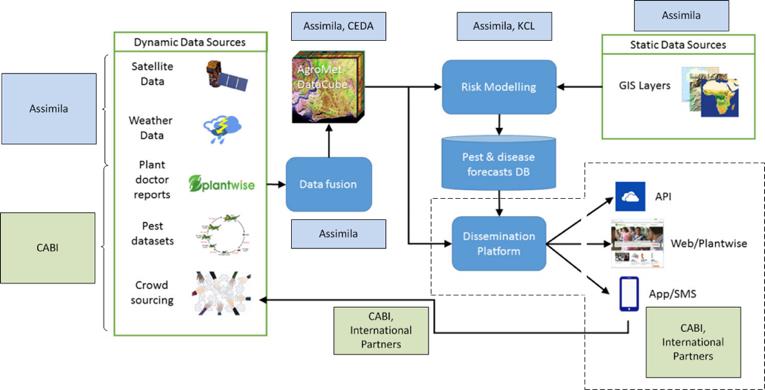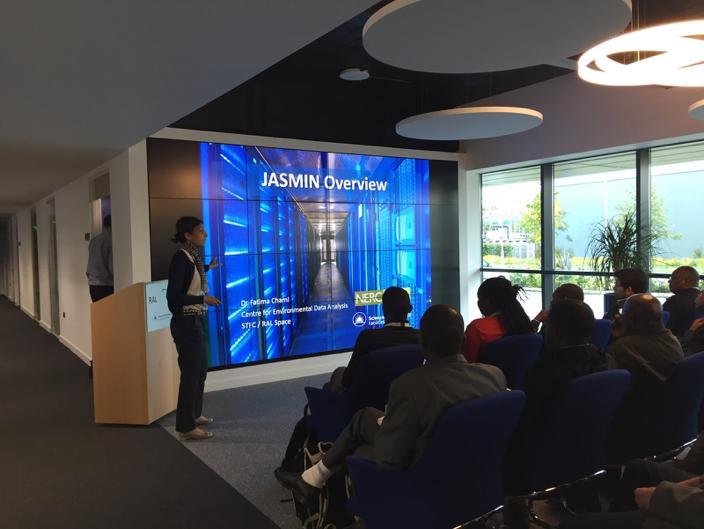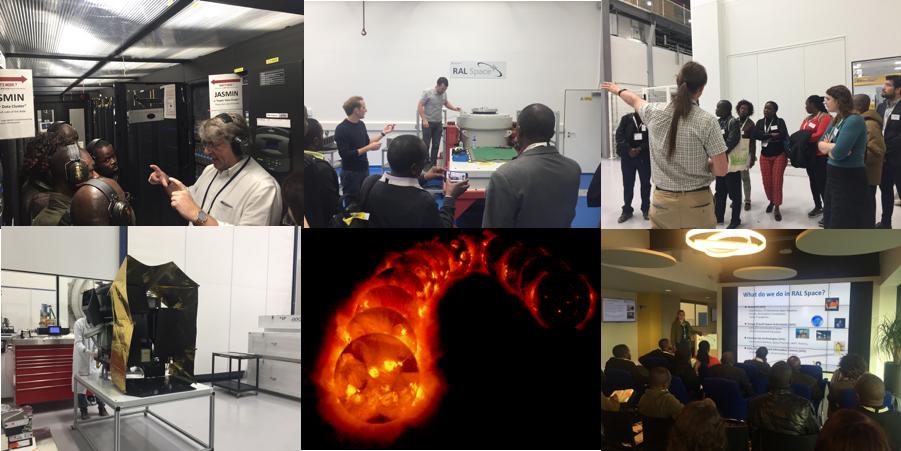News
Reducing pest risk through collaboration; PRISE visit to RAL Space
Posted on November 3, 2017 (Last modified on October 19, 2023) • 4 min read • 693 wordsOn Friday 29th September, the Centre for Environmental Data Analysis (CEDA) hosted key partners from the PRISE project; including a variety of organisations across the UK, Zambia, Kenya and Ghana as part of the UK Stakeholder workshop.
PRISE - a Pest Risk Information Service, with grant funded through the UK Space Agency International Partnership Programme, - aims to deliver modelling and prediction of crop loss caused by pests (such as insects, mites and plant pathogens) in up to six countries in sub-Saharan Africa. Pests are estimated to cause around a 40% loss of crops to farmers. The work done by PRISE will support those working to reduce the devastating impacts of crop losses on farmers’ livelihoods which can greatly affect their food security. The project will use a combination of Earth Observation satellite data and plant-pest life cycle data to forecast pest outbreaks.
CEDA provides technical infrastructure to the PRISE project in the form of an unmanaged cloud tenancy on JASMIN, allowing the project to utilise processing and data storage capacity and permit the integration of pest and model data from the archives of the project leaders at theCABI. The CEDA archive will also hold and provide access to validation data for Earth Observation satellite data which will help optimise accuracy. These data will enable the pest risk service to forecast the severity of a pest outbreak, and then communicate this risk, along with mitigation measures, directly to the farmers that could be affected. Alerts could help farmers to use management strategies on their crops before an outbreak causes damage; thus potentially saving their crop and livelihoods.

JASMIN, part of a wave of new technologies, has the potential to overcome barriers to exploitation of space data. Fatima Chami (CEDA) gave the delegation a talk on the full capabilities of the JASMIN infrastructure and an overview of current projects running on JASMIN. She highlighted that in addition to providing storage and computational resources for development of services, such as PRISE, JASMIN can also provide access to data and analysis tools on virtual machines over basic low bandwidth SSH (Secure Shell) connections. This allows data to be easily manipulated and analysed remotely, removing the need to transfer data to or install specialist software at local facilities or research institutes. This combination of computing capability and access to a broad range of high volume data, which is not locally available in many African countries, is potentially game changing in terms of the international scientific collaborations and partnerships that it can foster.

The group were able tour the new RAL Space R100 facilities where the next generation Meteosat 3 components are currently undergoing environmental testing. The delegates then proceeded to the state of the art JASMIN machine room and onto the historic Solar Terrestrial Physics archive held at RAL where they were able to look at early geophysical records of the African continent from the 1950’s .

The group continued with a walking tour of the Harwell campus where they were able to view Diamond Light Source and ISIS facilities who are undertaking cutting edge research of wider benefit to the international agricultural research community.
The PRISE project will gain impact through the international partnerships; bringing together the local experts, scientists and organisations from across Africa with pest modelling expertise of CABI, earth observation and systems development skills of King’s College London, and the environmental consultants Assimila, and the data specialists and facilities of CEDA. It is by crossing the boundaries of scientific disciplines and international communities that the project will drive the next generation of data science and provide sustainable solutions to real world problems.